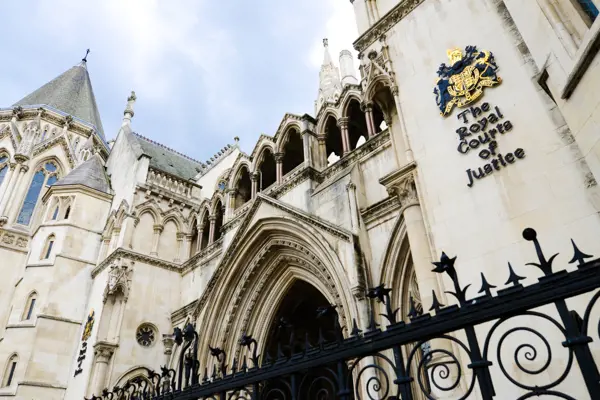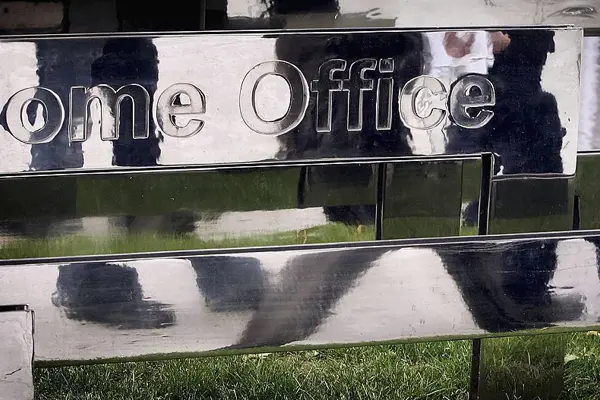Do not resuscitate decisions
A guide for patients and families to Do Not Resuscitate (DNR) decisions
What is a DNR?
DNRs, DNARs, and DNACPRs are all abbreviations referring to an advance decision made by medical staff not to attempt cardiopulmonary resuscitation (CPR) on a patient who has stopped breathing, or whose heart has stopped. In more medical terms, when a person is suffering respiratory and/or cardiac arrest.
DNR is used throughout this guide, as it is the most commonly used abbreviation by patients and families.
Thinking about medical treatment at the end of your life is highly emotional for many people. It can be hard to listen to a doctor saying that they are unlikely to be able to restart your heart or breathing.
It is also hard for a professional who has spent their life trying to heal patients to deliver this news.
It is important that you know how these decisions are made so you can have informed discussions with your healthcare professionals, and hopefully reach an agreed decision. These discussions should take place between the patient and his/her healthcare professionals, with relatives and carers involved if the patient wishes or the patient lacks the capacity to have the discussion.
Merry Varney is a partner in the human rights department, and specialises in the protection of the rights of children, vulnerable adults and patients.
"She's brilliant," says a source. "She's very sharp and she's given us extremely good advice throughout." - Chambers and partners 2020
Merry was instructed in the case of Janet Tracey, in which the Court of Appeal sent a clear message to health professionals that clear information and consultation is legally required for DNR orders.
More information about DNRs
There are many misunderstandings about what a DNR order means, and the law surrounding their use.
The most important factor to bear in mind is that the law does not require a patient, or their family to consent to a DNR order. This means a doctor can issue a DNR order, even if you do not want one (see section on what to do if there is a disagreement).
The law instead limits the use of DNRs to certain circumstances, and gives patients a right to be involved in the decision making process. Put another way, patients have no right to demand that a doctor provides CPR if that doctor does not believe that CPR would be successful, and hence not in their patient’s best interests.
Health care professionals should start discussions about resuscitation if a patient is at risk of stopping breathing or their heart stopping. The earlier these discussions are had the better, as planning in advance is considerably less stressful than urgent conversations in the last days of life.
Try not to see the raising of the topic as an indication of any ill-will on behalf of healthcare professionals or that they are ‘writing you off’.
Resuscitation is an invasive procedure and can prevent a patient being surrounded by family in their final moments. Healthcare professionals rightly do not want to subject dying patients to such an act if it will not prolong their life.
There are three main circumstances in which the law allows DNR decisions to be made:
- Where a patient, with capacity, asks not to be resuscitated. This must be respected and a DNR order implemented to alert all healthcare professionals not to attempt resuscitation. You can request a DNR order at any time.
- Where a doctor considers that resuscitation is likely to be “futile”, i.e. in their medical opinion, CPR will not work.
- Where a doctor considers, having had full consultation with the patient, that the burden of CPR outweighs the benefit to the patient, i.e. that CPR may restart the heart and breathing, but the patient is likely to be left with a poor quality of life (a benefit v burden test).
All decisions should be made on an individual basis and there should be no blanket policies dictating the use of DNRs.
The law requires the following process – those close to the patient should be involved unless a patient has asked for them not to be.
- If a patient is likely to stop breathing or their heart stop, they should be made aware that a DNR decision may be appropriate and that this will not affect other treatment decisions.
- The patient should have access to clear information about what DNR decisions are and how the decisions are made. If a patient does not want to discuss the matter further but wants to leave the matter in the hands of their doctors, this can be confirmed at this early stage and it will be documented in your medical records.
- The patient should then have a chance to have a full discussion with the doctor who shall make the DNR decision so they can express their views and listen to the expert medical opinion of their doctor.
- The doctor should then make a decision and communicate this to the patient, explaining to them clearly the reasons for the decision. If the patient disagrees with the decision, the doctor should, as a matter of good practice, offer to arrange a second opinion.
The only circumstance in which a patient may be excluded from the process is if their doctor reasonably considers involving them would cause them psychological harm, for instance, severe mental distress over and above that which all of us would suffer when discussing end of life care.
If the patient has no capacity to make the decision themselves about whether they wish to receive resuscitation, a DNR decision can be made in the patient’s best interests. If a Personal Welfare Deputy is appointed they can act on the patient’s behalf, but in any event families and carers should be involved in the decision making process described above and given the opportunity to understand the process, explain the patient’s wishes if known, and explain their wishes.
DNR orders ought to be reviewed regularly and in particular if the patient’s condition changes or the patient’s views change. How often a review is required depends on the circumstances and you should speak to the doctors about this.
Whether the DNR order will apply following discharge from hospital also depends on the circumstances, and practices differ across the country. You should discuss this with your doctor.
A DNR order applies only to CPR and so having a DNR order should not affect what other treatment a patient receives. However research has suggested this has been an area of confusion for some healthcare professionals, and you should discuss any concerns with your doctor so you are clear about the full treatment plan being proposed and what role the DNR order plays within that plan.
If there is a disagreement about whether a DNR order should be made, first discuss this with the senior doctor. As a matter of good practice, second opinions on whether CPR would work should be offered. It is important to listen to the second opinion carefully. If a dispute still remains, you may want to seek legal advice.
You should remember however that the Courts will not compel any doctor to give treatment that the doctor reasonably considers not to be in his or her patient’s best interests, and so finding a doctor who is willing to give CPR is usually essential to any successful challenge.
Going to Court during what may be the final stages of a loved one’s life must be carefully considered as talking to lawyers will inevitably reduce the time available to spend with your loved one.
Remember throughout these discussions that DNR decisions should not affect any other treatment and that agreeing to a natural death, with no invasive resuscitation attempts, is not the same as actively hastening death.

